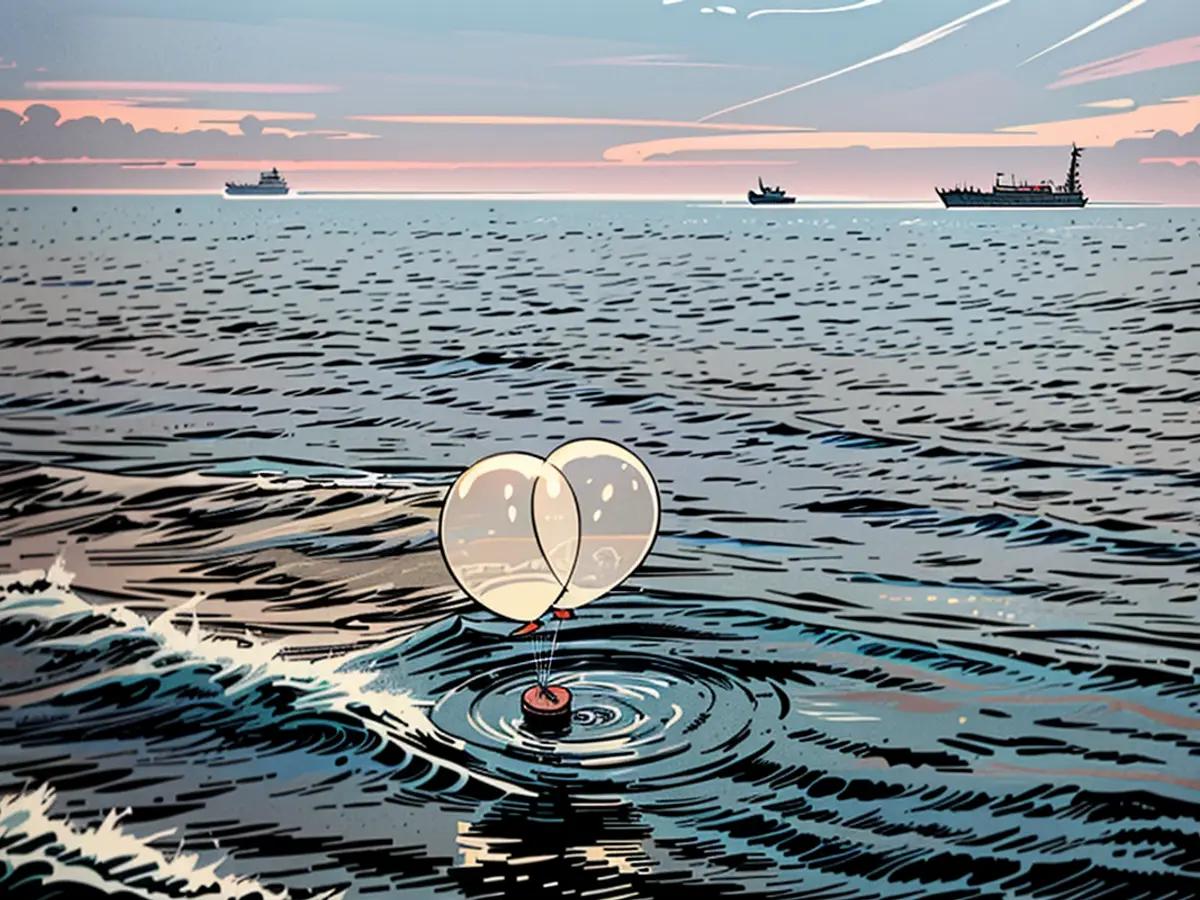North Korea launches more garbage-filled balloons as Kim's sister hints at further retaliation.
The newly launched balloons by North Korea, previously criticized by Seoul as "contemptible and worrisome," seem to be retaliation for South Korea's decision to resume loudspeaker broadcasts of anti-North Korean propaganda near the border.
Kim Yo Jong, Kim's sister and government spokesperson, warned that the restart of loudspeaker broadcasts could lead to an "extremely hazardous situation."
A statement from North Korea's state media quoted Kim as stating that South Korea would face an unspecified "new countermeasure" from the North if it persisted with the loudspeaker broadcasts and failed to inhibit anti-North Korean propaganda leaflets from being sent across the border. She sternly commanded Seoul to cease this action, stating that it was creating a "dangerous situation."
The South Korean Joint Chiefs of Staff proclaimed that North Korea was to blame for the current circumstances and advised the North to "immediately cease these malicious acts like releasing trash-filled balloons."
Monday saw a JCS spokesperson declining to disclose whether South Korea would continue the loudspeaker broadcasts, saying only that the military would carry out operations "flexibly according to the strategic and operational situation."
Prior to its 2018 summit with North Korea, South Korea applauded the propaganda broadcasts as part of its psychological warfare against the North. The broadcasts relay information about "the truth about North Korea" and the development of South Korea and Korean culture, according to the JCS.
Recently, more than a thousand balloons loaded with trash were send across the heavily secured boundary by North Korea, as a result of South Korean activist groups sending balloons filled with anti-North Korean leaflets in the opposite direction for years.
On Monday morning, the South Korean military reported finding "around 50 balloons" that had landed in its territory during the night between Sunday and Monday. Many other balloons are assumed to have returned to North Korea due to the wind, the JCS spokesperson shared.
The tit-for-tat exchange has raised suspicions of potential retaliatory military action. Last week, South Korea put a 2018 agreement to reduce military tensions with the North on hold, giving it the leeway to renew propaganda broadcasts and potentially dig up military activities along the border.
In the past week, South Korean activists fired balloons containing hundreds of thousands of fliers criticizing Kim Jong Un and 5,000 USBs loaded with K-pop and K-dramas across the border.
For several decades, North Korea has been highly isolated from the outside world, with strict control over what information enters or exits the country. Prohibited objects such as films and books are forbidden; those found with initial contraband often face severe punishment, as defectors report.
Earlier this year, a South Korean research group released rare footage purportedly depicting North Korean teenagers being sentenced to labor for watching and transmitting K-dramas.
In recent years, North Korea's relationship with China has grown, allowing for some Southern elements, including parts of its pop culture, to gradually infiltrate the hermit nation—particularly in 2017 and 2018, when relations between the two countries warmed up.
However, the situation in North Korea deteriorated in the subsequent years, and diplomatic negotiations broke down—leading to the reinstatement of strict regulations in the North.

Read also:
The ongoing tension between North and South Korea has sparked concerns about potential escalation, with Asia being a key region closely watching the situation. If the conflict escalates, it could have significant implications for the world at large.







